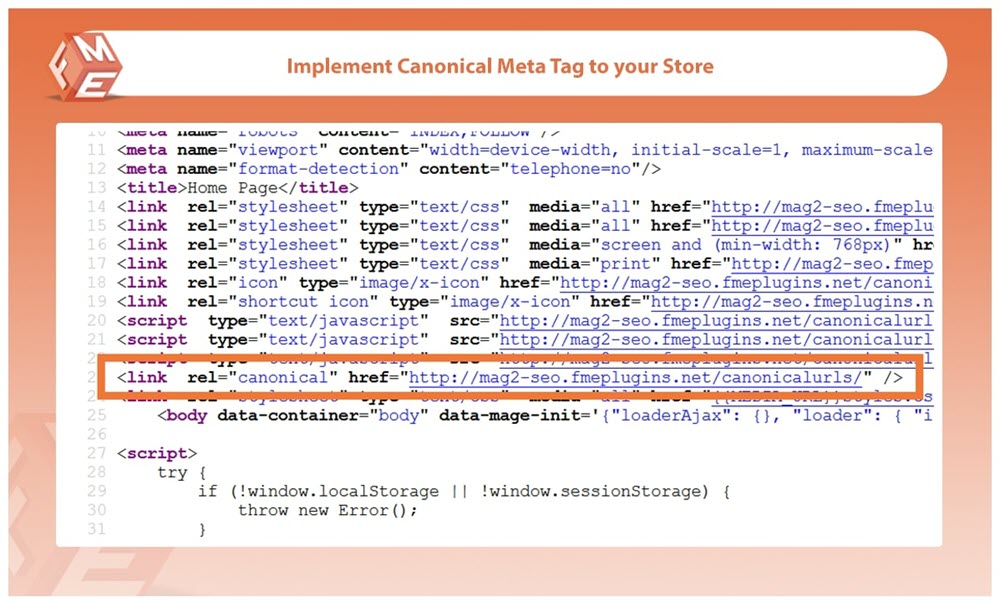One of the most essential parts of digital marketing is SEO. It is comprised of a set of techniques that makes website optimized and in accordance with the search engine ranking standards. Following the rules defined by search engines are important to acquire higher rankings in search engine result pages.
There is a variety of tools available to assist SEO experts in bringing the website in proper structure. The essence of creating a business website is to drive the potential audience to the business and sometimes to generate sales when it comes to eCommerce websites.
Just like other aspects of website optimization, On-page SEO is one of the most important aspects that are vital to organize your website contents and internal website elements to make them in accordance with the search engine standards. When we talk about content management systems, then Magento is considered one of the best and reliable platforms that have attracted merchants all across the world.
The eCommerce SEO is considerably challenging than ordinary websites as it involves a variety of listed products. Luckily, there are plenty of extensions available by professionals for the Magento platform for a variety of eCommerce tasks. Out of these, one of the best extensions that are designed for Magento 2 SEO is what we are going to discuss today.
We are talking about not other than SEO extension for Magento 2. We will give you tips and tricks to effectively utilize this extension for your eCommerce On-Page SEO.
Auto-generate SEO Meta tags

Meta tags provide information about web-pages to the search engines. They allow search engines to understand what a web-page is all about. The Meta tags are optimized to offer the precise and most accurate information about the content that assists to rank higher in search engine results.
Search engines are aimed to offer seamless user experience by offering exact search results. In this regard, Meta tags offer a clear depiction of what is the nature of the content present on the web-page and search engines also determine where to rank the web-page against user search queries.
It is quite challenging to set up Meta tags for each web-page, especially for eCommerce web-pages. So for your amazing online store, try to create templates with the help of Magento 2 SEO extension for auto-generation of Meta tags for multiple products, categories, and CMS pages.
Create Alt tags for Product Images

The eCommerce web pages are mostly loaded with products that have descriptions along with the graphics. The product images play an important role in enhancing the significance of enlisted products. Without those images, merely anyone would go for purchasing particular products.
You need to describe these images for the search engines to understand and make a way for organic traffic as well. Specifying alt text to images is an ideal way of making those images search engine friendly. The alt tags appear when the images on the webpage fail to load.
Due to the presence of massive product images presents all over the online store, it becomes almost impossible for eCommerce merchants to embed the alt text with each of the product images. Have no worries because the Magento powered eCommerce stores can take advantage of additional extensions like Ultimate SEO optimizer to smoothly attach alt tags to all those product images that are SEO optimized and can be generated automatically.
Integrate Sitemaps
A sitemap is manifested website information that is integrated into a proper structure to help assist search engines smoothly access the information from the website when the relevant web query is performed by the users in search engines.
There are two types of sitemaps XML and HTML. The XML sitemaps work on the back-end of the website and are not visible to the end-users. These sitemaps are integrated to help search engine bots crawl the relevant information from the web pages.
The XML sitemaps are highly important for websites as if the search engine spiders couldn’t crawl information from web-pages, then those web pages don’t get indexed. That means they can’t get in the spotlight and fewer users land on those pages.
On the other hand, HTML sitemaps are created to lead users to the different sections of the website. Instead of searching their way to the intended information, the HTML sitemaps assists in accessing them conveniently. The sitemaps are considered really important for SEO purposes. The Magento powered eCommerce websites can have the leverage of using Magento 2 SEO extension to configure XML and HTML sitemaps for their online stores. The extension allows configuring sitemaps for products, categories and CMS pages effectively.
Consider setting up rich snippets
As every eCommerce store is in the race of getting ahead in making more sales, they tend to formulate different strategies and try adopting a variety of techniques to attract potential customers. The manifestation of online business has evolved and now more advanced techniques have been implemented to make the most out of a business.
The website optimization techniques have changed from stuffing industry-related keywords to offering valuable content to the users. In this regard, the integration of rich snippets is the most efficient way of driving potential users towards a business.
Rich snippets are a clear and precise description specified along with the link to the website in search engine results. E-commerce merchants tend to display product names, along with price and ratings to provide a quick glimpse of product information that is enlisted in their online stores.
Rich snippets are one of the most beneficial elements of the Magento 2 SEO process. Merchants can easily set up rich snippets with the help of extensions like Ultimate SEO optimizer.
Find out content duplicates
With new updates, the search engines have made it clear that the high quality and unique content would be given priority and off course the poor quality content and the content that is copied from other online sources will be punished consequently.
The eCommerce stores have to confront the duplicate content issues. This is because most of the products get listed on multiple web-pages with the same descriptions. The search engines couldn’t differentiate those product pages, thus consider them poor in quality. They get confused as which of those pages should be ranked higher so they place all with similar content to lower in search engine rankings while giving preference to other web-pages in higher rankings.
As multiple URLs that are leading to the same content creates a lot of ranking issues, ideally solution to this is canonical URLs. Magento 2 SEO extension makes it easy for merchants to assign canonical tags to multiple store pages and make them appear unique to the search engine bots.
Final Words
The SEO is no doubt a vast field where professionals have to keep track of every matrix to optimize the website. On-Page SEO is the most fundamental aspect of the overall website optimization process. Many experts only pay great attention to Off-page SEO techniques and neglect focusing on On-Page elements. The reality is you can’t get much success in achieving higher search engine rankings if your website is not properly structured in terms of On-Page SEO.



